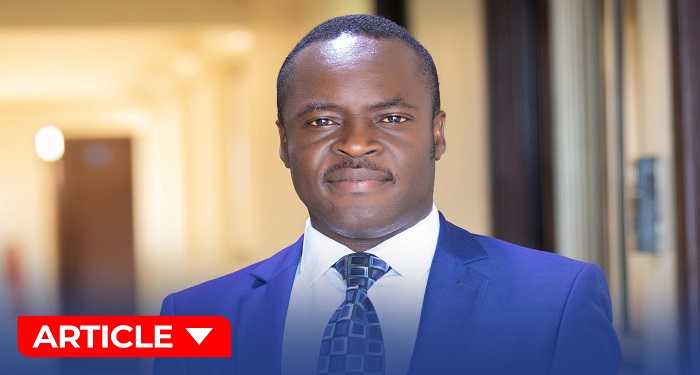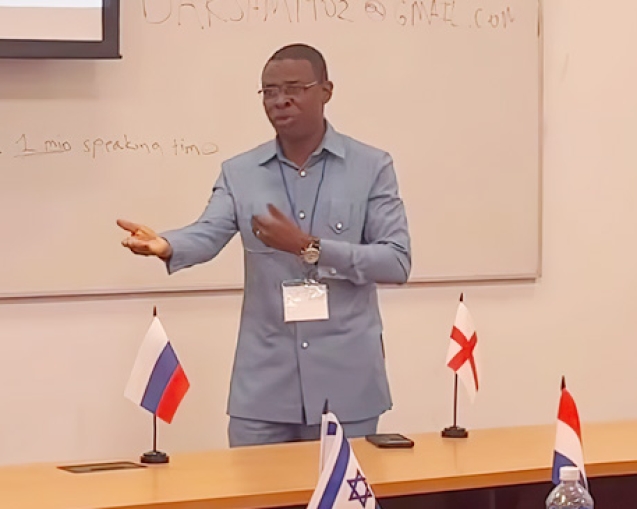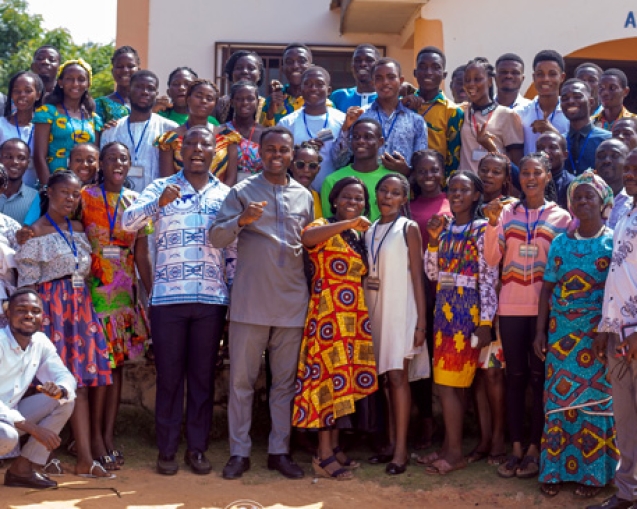“You were the best father in the world.” “You were my most priceless possession and best friend.” “You were such a treasure to this organization and humankind in general.” These were lines in the tribute of some children, a widower, and an organization, respectively, after the loss of their loved ones. Although there may be some levels of exaggeration during such occasions, they largely represent what the individuals concerned might have lived for.
When the former president of Ghana, in the person of Flt. Lt. (Rtd) Jerry John Rawlings, died on Thursday, November 12, 2020, some rushed to his residence and poured their hearts out, expressing their heartfelt condolences to his family. Many eulogized him as a patriot, hero, mentor, and democrat who loved people. Wow! Some also said, “A great oak has fallen, and he will be missed.” These and many more are to be expected in the coming days before, during, and after his final funeral rites.
Why some of these heart-warming and mouth-watering tributes which can rather encourage people to even do more are not written, read, and discussed to their hearing until they pass on, is the phenomenon this article seeks to examine. The big surprise to many who are tempted to judge some of these tributes as a display of hypocrisy is the motivation for withholding all these positive stuff about people until their demise. This aged-old phenomenon of hoarding and keeping mute on the virtues of people until their passing or exit from office is not necessarily an African thing. Although some cultures, due to their norms and beliefs, are more inclined towards such practices, it is generally one of the human flaws and weaknesses traceable to humankind’s depraved nature. Otherwise, it is incomprehensible, to say the least, why the sudden surge in the realization of one’s importance, good deeds, value, and love for people just after one leaves the scene or is no more.
As a matter of fact, there is a whole dossier of inspiration to pick from tributes people pay to departed souls for the positive impact they made on society during their lifetime. If nothing at all, it indicates what is likely to be penned down about us when we leave this life or the current office we occupy. I equally appreciate the need for certain things to be done in memory of those who paid their dues selflessly to better society and institutions they served. This commendable practice, I believe, can be done at any suitable time after the death of such persons. I am neither advocating nor craving for the appropriation of honours before their due time. What baffles me is the apparent late or missed golden opportunities and the associated helplessness and regrets for failing to acknowledge the admirable and unique God-given virtues of some remarkable persons we encounter in life. I believe some were waiting for what they probably termed as an opportune time to express their appreciation when the unfortunate occurred to those deserving of it. I think that this contributes to why some grieve excessively and cannot just forgive themselves for allowing those opportunities that came their way to slip by. Some regret their inability to at least acknowledge others to their hearing with phrases such as, “You did well” or “You made a lasting impact in my life,” “I admire your talent or gift, etc., before they departed.
Strangely enough, others wait until some are weak, sick, or are at the point of death before piling academic laurels on them or acknowledging their contributions to society. Other institutions and organizations would also not hesitate at all to confer upon people their hard-sought promotion on the day they are laid in-state for the simple reason that they were already earmarked for those decorations. If that were the case, why at that late hour? The question remains; what blinds our judgements and prevents us from making the maximum use of the gifts, graces, and talents of others during the days of their lives? Is it hatred, bitterness, envy, unforgiving spirit, unhealthy competition, hypocrisy, jealousy, or sheer wickedness? Better still, is it procrastination, the fear of being aligned to a group, or the genuine concern that they may be puffed up with pride to their destruction should their good deeds be acknowledged? Whichever way one looks at it, none of the above reasons is tenable, judging from the mutual benefits society, generally, stands to gain from tapping into the people’s strengths and acknowledging them while they are yet alive.
A case in point is when Israel asked for a human king to rule them like the other nations in 1 Samuel 8:19-21. Even though God was not happy with that request, He chose Saul the Benjamite and anointed him through Samuel the prophet to rule them. Referred to as Seers in those days, Samuel positioned himself to offer Saul every revelatory support and guidance needed for him to succeed as Israel’s first human king. Unfortunately, and quite reminiscent of humans accorded with some small power, the more Samuel desired getting closer to Saul, the more Saul opted to do his own thing. At one instance, instead of waiting patiently for Samuel, Saul ignored counsel and offered a burnt offering himself (1 Samuel 13:9-14). The reason he gave for this grave error was the fear of the Philistines and the excuse that Samuel was late in arriving. Out of fear of the unknown, godly counsels by those God specifically sends along our paths to offer us a helping hand is at times ignored and pushed aside.
1 Samuel 15:52b says: “And whenever Saul saw a mighty or brave man, he took him to his service.” Was he, therefore, selecting his advisers based on his judgment and intuition alone? Could his failure be the result of those he surrounded himself with? In all of this, time was running out for Saul to get the most from the relationship with Samuel, his God-given mentor, when the latter was alive. In another instance, God instructed Saul through Samuel to attack the Amalakites and destroy everything that belonged to them (1 Samuel 15:2-4). Here again, Saul disregarded Samuel’s instruction by sparing the life of the Amalekite king, together with what he referred to as the best of the sheep and cattle. This time around, Saul blamed his inaction on his soldiers. It was becoming evident that he had taken Samuel for granted or thought he could always have him around when needed. Little did he know that time was ticking by the day so far as benefiting from Samuel’s ministry was concerned. These two instances, unfortunately, caused his outright rejection by God as Israel’s King.
1 Samuel 15:34-35 could not have described the frosty relationship that prevailed between Saul and Samuel during the latter’s last days any better when it said, “Then Samuel left for Ramah, but Saul went up to his home in Gibeah of Saul. Until the day Samuel died, he did not go to see Saul again….” Afterwards, a one-stanza harmless song by the Israeli women in appreciation of David for killing Goliath, the Philistines giant infuriated Saul to the extent that an evil spirit started tormenting him. Out of jealousy and in pursuit of his life, David had to run away from him. Meanwhile, David was the one who brought Saul the needed relief anytime the evil spirit was troubling him. The closest Saul managed to get to Samuel again was on his mission to capture David when he was told he had run to take refuge with Samuel. On that destructive mission at the great cistern at Seku, he asked, “Where are Samuel and David?” (1 Samuel 19:22). What are your reasons for eagerly looking for that person? Is it to punish, ridicule, avenge or settle an old score or to patch up with him or her? Remember, time may not be on your side or their side.
Whereas David brought Saul relief anytime the evil spirit pounced on him, Samuel was always available to calm down his nerves when gripped with fear. David was, therefore, supposed to be his shield and deliverer whilst Samuel his mentor and guide at least during the days of their lives. Instead of appropriating these God-given gifts both had to his benefit, King Saul allowed pettiness, hatred, pride, and jealousy to take the better part of him. Saul least expected Samuel’s exit to be just around the corner. Around 1,012 BC, the inevitable that occurs to all humans happened when death laid its icy hand on Samuel, the last judge of Israel and the first prophet after Moses. Unfortunately, this was the time King Saul needed him the most. Apart from the absence of Samuel, exiled David had been welcomed by the Philistines who were on a military campaign against Israel.
Saul tried inquiring from the Lord about what to do when the Philistines gathered to fight Israel. God, however, did not answer him by dreams or Urim or prophets (1 Samuel 28:6). He then resorted to an abominable practice of necromancy [conjuration of the spirits of the dead for purposes of magically revealing the future or influencing the course of events] which he had earlier outlawed. Saul finally consulted a witch at Endor for direction and counselling from the dead. Ignoring all associated risk, he disguised himself and visited this lady at her cottage in the night. He starved for a whole day and night lying prostrate and confessing before the ghostly figure or fortune-telling spirit masquerading as Samuel saying, “The Philistines are fighting against me, and God has departed from me. He no longer answers me, either by prophets or by dreams…” (1Samuel 28:15).
Meanwhile, during Samuel’s lifetime, Saul had unrestricted access to sit, dine, and talk to him at any time of his choosing. The time, energy, stress, and cost associated with the fruitless search for departed Samuel’s counsel was avoidable should he have made good use of him when he was alive. Saul finally took his life when he got badly wounded in this very battle he fought against the Philistines without direction and help from God, Samuel, and David (1 Samuel 31:4). If we fail to make use of the grace and gifts of people whilst they are alive; we tend to pay a high price to access their look-a-likes when they are no more.
In another instant in Luke 16:19-31, the rich man who had every opportunity to socialize with Lazarus when he was alive rather chose to leave him at the entrance of his gate at the mercy of his dogs. After they both died and entered their separate destinations in the next world, the rich man attempted to seek help from Lazarus through Father Abraham. In this parable that depicts the next life, Jesus taught and still teaches that across the bridge of this life, all efforts to solicit help, extend reconciliatory gestures, smoke the peace pipe, and socialize do not achieve anything.
Abraham’s final reply to the rich man’s request for him to send special envoys from heaven to visit his five living brothers, so they do not end up like him strikes a chord for those of us who are alive today. He told him, “They have Moses and the prophets; let them listen to them.” With these two biblical illustrations, coupled with the uniqueness with which God created each and everyone, it is likely some departed souls carried with them the counsel, direction, relief, peace, and the solution to some puzzles of life others are struggling to unravel. Why must we allow this to continually happen to us? As bitter as this truth may sound, there is no point crying over spilled milk. The simple lesson here is to try and do the needful whilst we are alive. Instead of waiting to visit your mentor, Daddy or Mummy’s tomb at the graveyard, why not get to them and make use of their counsel whilst they are alive? Why wait to lay wreaths on the coffins of others when you can extend a right hand of fellowship and mend that increasingly hostile relationship that has developed between the two of you today? Of what benefit will it be to wait and bow to the dead as a sign of showing your last respect when you denied them their first respect?
Open, therefore, your mouth, no matter your differences and try to acknowledge with much appreciation the strength and virtues of others whilst they are alive. Go to them now; if distance is a problem, pick a phone and call them to tell them their virtues you would have touted should they be laid in-state. This is not to say that they are infallible or faultless. It also does not mean that you do not have a cause or a case to insist on keeping your distance from certain individuals. It is just to suggest that you are not going to be the sitting judge pronouncing judgment on that great day when the secrets of all our deeds are revealed.
In like manner, if you find others doing the wrong thing or moving in the wrong direction, it is better to visit them and talk to them before it is too late. Castigating them after their demise when you were in a better position to offer a helping hand today is counterproductive. Who knows, you may save a soul from eternal damnation with that line of action. Let us avoid the hypocritical tendencies when people pass on and rather make good use of their gifts, seizing every opportunity to be nice to them and acknowledging their hard work while they are alive.
About the Author:
Pastor James Orhin Agyin is the Projects, Development & Estate Manager at The Church of Pentecost Headquarters.


















